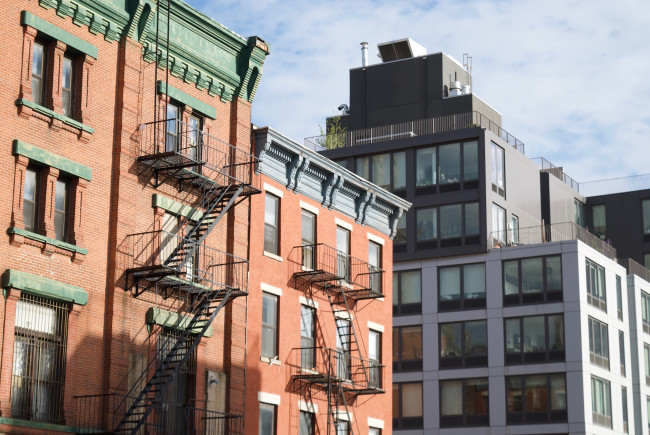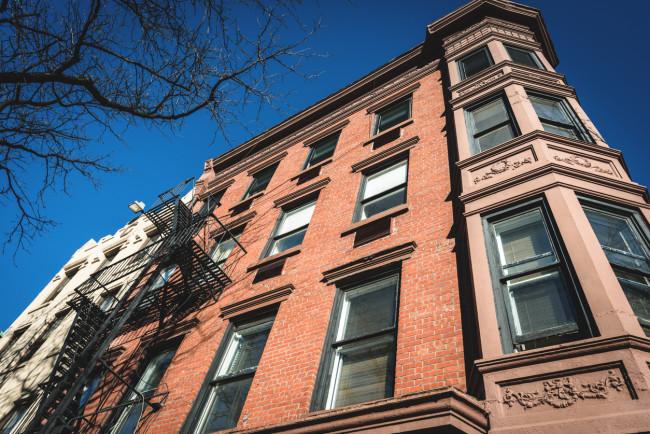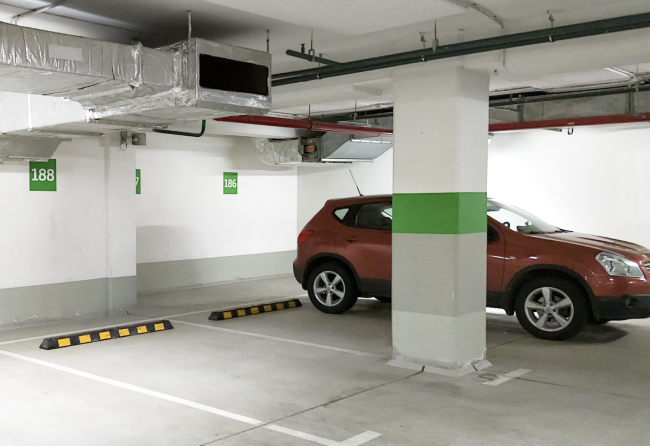Can I still get a buyout of my rent-stabilized apartment?
- Buyouts are less prevalent today but can occur in some scenarios
- If your building is in a prime development area, a buyout may be possible

Rent-stabilized tenants in buildings where the landlord wants to do a substantial rehabilitation of the building may also have an opportunity for a buyout.
iStock
Can I still get a buyout of my rent-stabilized apartment?
“Since 2019, when New York’s rent laws were overhauled, landlords have had fewer incentives to pay tenants to leave their rent-stabilized apartments, but that’s not to say those opportunities don’t exist,” says New York City real estate attorney Steven Wagner, a partner at Adam Leitman Bailey, P.C. who represents tenants and apartment owners, as well as co-op and condo boards.
Tenants in rent-stabilized apartments now have increased protections and it’s much more difficult for a landlord to cycle a rent-stabilized unit out of the affordable housing program and turn it into a market rate apartment with a higher rent.
As a result, there are fewer buyouts, but there are still situations where landlords may be motivated to pay a substantial amount for you to surrender your rent-stabilized lease, Wagner says.
Wagner handles most buyout cases on a contingency-fee basis, only receiving payment if and when the buyout occurs. “Your chances of a successful buyout will be higher if you are paying preferential rent, live in a building that’s already been converted into a co-op or condo, or if your building is in a prime spot for development,” he says. Tenants in buildings where the landlord wants to do a substantial rehabilitation of the building may also have an opportunity for a buyout.
Having an experienced buyout attorney will be important in identifying whether your apartment presents a buyout opportunity as well as in evaluating and negotiating the deal. It all depends on the kind of property and whether the landlord will be able to raise the rent and make back their money after buying you out.
“It’s a unique combination of understanding the opportunities for landlords to deregulate or increase the rent and also familiarity with the laws and economics of zoning and development, as well as knowing how condos, co-ops, and rental buildings operate,” Wagner says.
Here are five scenarios in which a landlord may want to buy out your rent-stabilized lease.
1) You’re paying a low preferential rent
If you signed a lease with a preferential rent—a rent that is lower than the maximum legal regulated rent for the units—a buyout may be a viable option. In the past a landlord could offer renters a low, preferential “teaser” rent to get them into the building and then substantially increase the rent (all the way up to the legal rent) at renewal time. That is no longer allowed and the preferential rent is in place for the entire tenancy subject to the increases allowed by the Rent Guidelines Board.
If you vacate your apartment, however, your landlord will be able to raise the rent to the legal regulated rent for the next tenant and that’s why a landlord might be interested in buying out your lease.
“If there’s a substantial difference between the rent being paid and the legal regulated rent, that could form the basis of a significant buyout,” Wagner says.
2) You’re renting from the sponsor of a co-op or condo building
Landlords are looking for other ways to access the money tied up in their real estate now that stabilized apartments cannot be deregulated.
They can do that by offering a buyout of a non-purchasing, stabilized tenant renting in a building that’s already been converted to a co-op or condo. In most cases, when the rent-stabilized tenant vacates the apartment, the owner of the apartment can sell it or re-rent it free of the rent-stabilized restrictions.
In this situation, a landlord can unlock the equity in the apartment, which is likely to be substantial. “That’s an opportunity for a tenant to negotiate a buyout,” Wagner says.
3) Your landlord wants to demolish your building
If you rent an apartment from the owner of a rental building that’s in a prime position to be part of an assemblage of properties for a brand new building, a developer might try to get the tenants to voluntarily surrender their apartments and this presents an opportunity for a buyout.
“In this situation, a sponsor would pay tenants to leave the building and then make a demolition application,” Wagner says. Often developers make the demolition application while the tenants are in place and if that happens, tenants can contest it.
“If the landlord wants to knock down the building, there’s a big incentive to negotiate with the tenants and make sure they do not contest an application to deregulate the building," he says.
These applications can take years to complete if they are contested. Approval from the Division of Housing and Community Renewal is required before the landlord may refuse to renew leases and evict the stabilized tenants.
In this scenario, tenants will vacate their apartments well before the time it may take to get the necessary demolition approval. “Time is money to developers,” Wagner says. Once a developer commits to redeveloping the property, they usually want to move forward as quickly as possible and that presents a tenant with an opportunity to negotiate a buyout.
4) Your landlord wants to do a substantial rehabilitation
If your building is in need of major comprehensive upgrades, you may have an opportunity for a buyout. Substantial rehabilitation of a building going well beyond what’s called a Major Capital Improvement allows a landlord to remove an entire building from rent regulation.
For example, if the landlord wants to carry out a gut renovation where 75 percent of building-wide and individual housing accommodation systems are replaced, this may present a buyout opportunity.
”If you are one of the few remaining tenants there, the landlord could offer you a substantial buyout,” Wagner says.
5) Your apartment could be combined or reconfigured
One more avenue for landlords to increase their income from a building is to combine or change the configuration of units—splitting a larger apartment into two or combining a large amount of common space like a hallway into an apartment—allowing them to increase the rent on a stabilized apartment.
In some cases, this presents an opportunity to establish what’s called a “first rent” and it refers to the higher amount a landlord can charge for a newly combined apartment that’s on the market in its current configuration for the first time. “The term 'first rent' refers to the new rent agreed to by the parties,” Wagner says.
The apartment might not necessarily cycle out of rent stabilization but if the first rent is more lucrative for a landlord, there may be an opportunity for a buyout.
The types of apartments where changes to the configuration might be possible include units where a neighboring apartment is vacant or units where the footprint of the apartment can be substantially changed.
“These are the types of situations where a buyout might be negotiated,” he says.
New York City real estate attorney Steven Wagner, a partner at Adam Leitman Bailey P.C., has more than 30 years of experience representing co-ops, and condos, as well as individual owners and shareholders. You can submit a question for this column via email or if you’d like to arrange a free 15-minute telephone consultation with Steve, send an email or call (212) 584-1973.
You Might Also Like




















